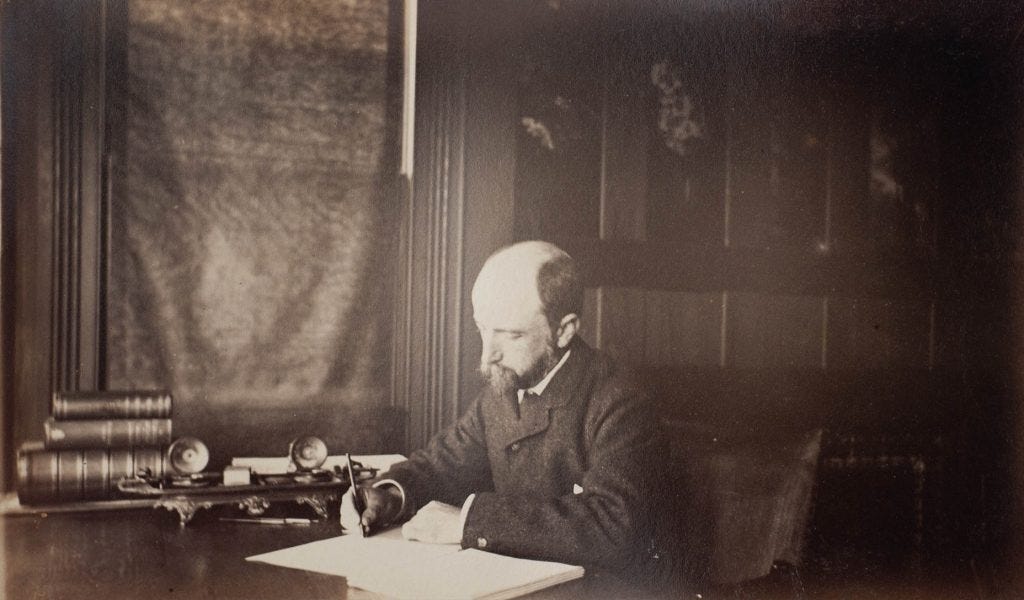

When Google's Fancy Lawyers Screw Up and Jeopardize Sheryl Sandberg, at $1500/Ho...
source link: https://mattstoller.substack.com/p/when-googles-fancy-lawyers-screw
Go to the source link to view the article. You can view the picture content, updated content and better typesetting reading experience. If the link is broken, please click the button below to view the snapshot at that time.
When Google's Fancy Lawyers Screw Up and Jeopardize Sheryl Sandberg, at $1500/Hour
A redacted document showed extremely sensitive information. Google's lawyer accidentally made it public.
Welcome to BIG, a newsletter on the politics of monopoly power. If you’d like to sign up to receive issues over email, you can do so here.
Henry Adams, one of the most important thinkers in the 19th century and an ardent anti-monopolist, believed that corporate secrecy was the enemy of self-rule. "From whatever point of view the trust problem is considered,” he wrote, “publicity stands as the first step in its solution; and there is reason to believe that the further the government is willing to go in its statutory definition of publicity the greater likelihood is there that it may be excused from the necessity of exercising direct administrative control." When Congress originally designed the corporate tax system in 1909, the goal was to make corporate tax returns public. (This actually happened for one year in the 1920s, but was quickly ended.)
Today, big business in America is far too secretive, with an endless thicket of confidentiality rules, trade secrets law, and deferential judges and enforcers who think that revealing public information about big business is some sort of scandal. It’s so bad that when the FDA asked pharmaceutical companies where their manufacturing plants were at the beginning of the pandemic, some firms cited trade secrets rules and refused to divulge the information. This is a consistent problem - we didn’t know why the FTC refused to bring a case against Google in 2012 until a leak this year, and the information would have been incredibly useful had the FTC and Google not engaged in a decade-long cover-up. a posture is ridiculous and obnoxious, so I find it immensely pleasurable when the antitrust fancy world screws up and accidentally reveal information the public should know. And that just happened.
In a response to the complaint of a group of state attorney generals, Google’s lawyers - Paul Yetter at Yetter Coleman - filed a response, but accidentally forgot to redact critical information. So now we know a few important new details about the Texas adtech case. This case includes an allegation that Google’s large online advertising marketplace - think stock market but instead of stocks they trade ad slots - is riddled with secret rigged auctions.
The redacted details show something called “Project Bernanke,” a scheme engineered by Google in which had one arm of its ad business front-running trades for ad inventory, awarding itself hundreds of millions of dollars a year by giving itself a better position in the auctions. Project Bernanke (cute name guys!) was kept secret from publishers.
In addition, we now know more details about a deal between Google and Facebook to give Facebook some preferred position in those ad auctions, supposedly in return for Facebook not competing with Google in the online advertising auction space. As the Wall Street Journal notes, “The agreement was signed by, among other individuals, Philipp Schindler, Google’s Senior Vice President and Chief Business Officer, and Sheryl Sandberg, Facebook’s Chief Operating Officer.”
Zoink. Cartel deals aren’t just illegal, they are criminal. So double zoink.
Here’s Jason Kint on the screw-up.
I’ve asked around, and Yetter is likely to be getting $1500/hour, or more, for his legal advice. There are a couple of things to learn from this mistake. First, judges redact way too many details, often protecting what they perceive as business proprietary information but is in fact simply evidence of cheating. The court system is supposed to be a public accounting. And second, fancy lawyers aren’t Gods, and we should stop acting like that the hundreds of millions (or perhaps one billion plus), that Google spends on legal services, means it can avoid obeying the law. That myth is a way of getting the public to give up before the battle even starts.
I don’t think there should be a problem with leaks, because I don’t think there should be very much information kept secret in the first place. But to be clear, this isn’t the first leak in the case. When the Texas AG sent around his proposed complaint to the other state attorney generals, someone leaked the full complaint to the press. And one of Google’s lawyers - Eric Mahr from Freshfields - was outraged. "It's difficult for us not to believe that had plaintiffs not been for whatever reason rushing to file in December,” he said, “that additional confidentiality measures couldn't have been taken that would have avoided the leak."
Yes, don’t be too hasty, biglaw, you might reveal something truthful.
Recommend
About Joyk
Aggregate valuable and interesting links.
Joyk means Joy of geeK
